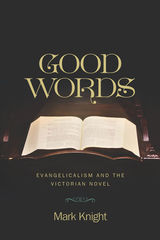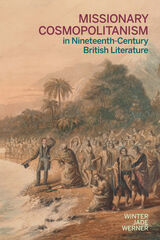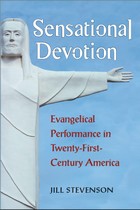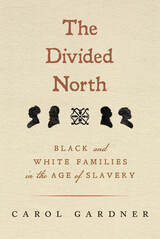3 books about Evangelicalism in literature

Good Words
Evangelicalism and the Victorian Novel
Mark Knight
The Ohio State University Press, 2019
This new study explores how evangelicalism played a vital role in the development of the Victorian novel. In contrast to those who see the evangelical movement as trivial to our histories of the novel and part of the losing side in religion’s battle with secularity, Good Words: Evangelicalism and the Victorian Novel examines fiction by major writers of the nineteenth century—Thackeray, Dickens, Wood, MacDonald, Collins, and Butler—and reveals the extent to which the novel was shaped by evangelical thought and practice.
Rather than getting lost in historical and theological rabbit holes, Good Words invites readers to think about why evangelicalism still matters for the stories we tell about fiction in the Victorian period. The result has major implications for our understanding of the Victorian novel, our conception of the relationship between nineteenth-century literature and religion, the way in which we think about evangelical culture in the modern world, and our ideas about the practices and protocols of scholarly reading.
Rather than getting lost in historical and theological rabbit holes, Good Words invites readers to think about why evangelicalism still matters for the stories we tell about fiction in the Victorian period. The result has major implications for our understanding of the Victorian novel, our conception of the relationship between nineteenth-century literature and religion, the way in which we think about evangelical culture in the modern world, and our ideas about the practices and protocols of scholarly reading.
[more]

Missionary Cosmopolitanism in Nineteenth-Century British Literature
Winter Jade Werner
The Ohio State University Press, 2020
Missionary Cosmopolitanism in Nineteenth-Century British Literature explores the notion that missionaries, often perceived as only evangelically motivated in the British imperial project, were also spurred on by cosmopolitan ideals. Winter Jade Werner makes this surprising connection in order to write against standard understandings of missionary work as well as typical understandings of cosmopolitanism as a deeply secular project.
Missionary Cosmopolitanism identifies the nineteenth-century novel as thematically and formally attuned to the tension between missionaries’ cosmopolitan values and the moral impoverishment of their imperialist and expansionist practices. Werner’s chapters interact with canonical works such as Charlotte Brontë’s Jane Eyre and Charles Dickens’s Bleak House, along with lesser-known works by Robert Southey and Sydney Owenson. Ultimately, Missionary Cosmopolitanism demonstrates that nineteenth-century literature both illustrated and helped define missionary discourses regarding cosmopolitan ideas, showing how global evangelicalism continues to tap into the “new cosmopolitanisms” of today.
Missionary Cosmopolitanism identifies the nineteenth-century novel as thematically and formally attuned to the tension between missionaries’ cosmopolitan values and the moral impoverishment of their imperialist and expansionist practices. Werner’s chapters interact with canonical works such as Charlotte Brontë’s Jane Eyre and Charles Dickens’s Bleak House, along with lesser-known works by Robert Southey and Sydney Owenson. Ultimately, Missionary Cosmopolitanism demonstrates that nineteenth-century literature both illustrated and helped define missionary discourses regarding cosmopolitan ideas, showing how global evangelicalism continues to tap into the “new cosmopolitanisms” of today.
[more]

Sensational Devotion
Evangelical Performance in Twenty-First-Century America
Jill Stevenson
University of Michigan Press, 2015
Sensational Devotion examines contemporary Passion plays, biblical theme parks, Holy Land recreations, creationist museums, and megachurches in order to understand how they serve their evangelical believer-users while also shaping larger cultural and national dialogues. Jill Stevenson explores how performative media support specific theologies and core beliefs by creating sensual, live experiences for those who use them. The book explores evangelical performance across a range of media and sites, including film, television, theater, tourist attractions, museums, and places of worship. Using historical research coupled with firsthand experiences, it critically examines these spaces and events within their specific religious, cultural, and national contexts, while placing them within a long devotional tradition to suggest how they cultivate religious belief by generating vivid, sensual, affectively oriented, and individualized experiences. Stevenson’s analysis builds upon existing work on performance and cognition, as well as theories of affect, as it contributes to existing scholarship on American evangelicalism and evangelical Christian media.
[more]
READERS
Browse our collection.
PUBLISHERS
See BiblioVault's publisher services.
STUDENT SERVICES
Files for college accessibility offices.
UChicago Accessibility Resources
home | accessibility | search | about | contact us
BiblioVault ® 2001 - 2025
The University of Chicago Press









